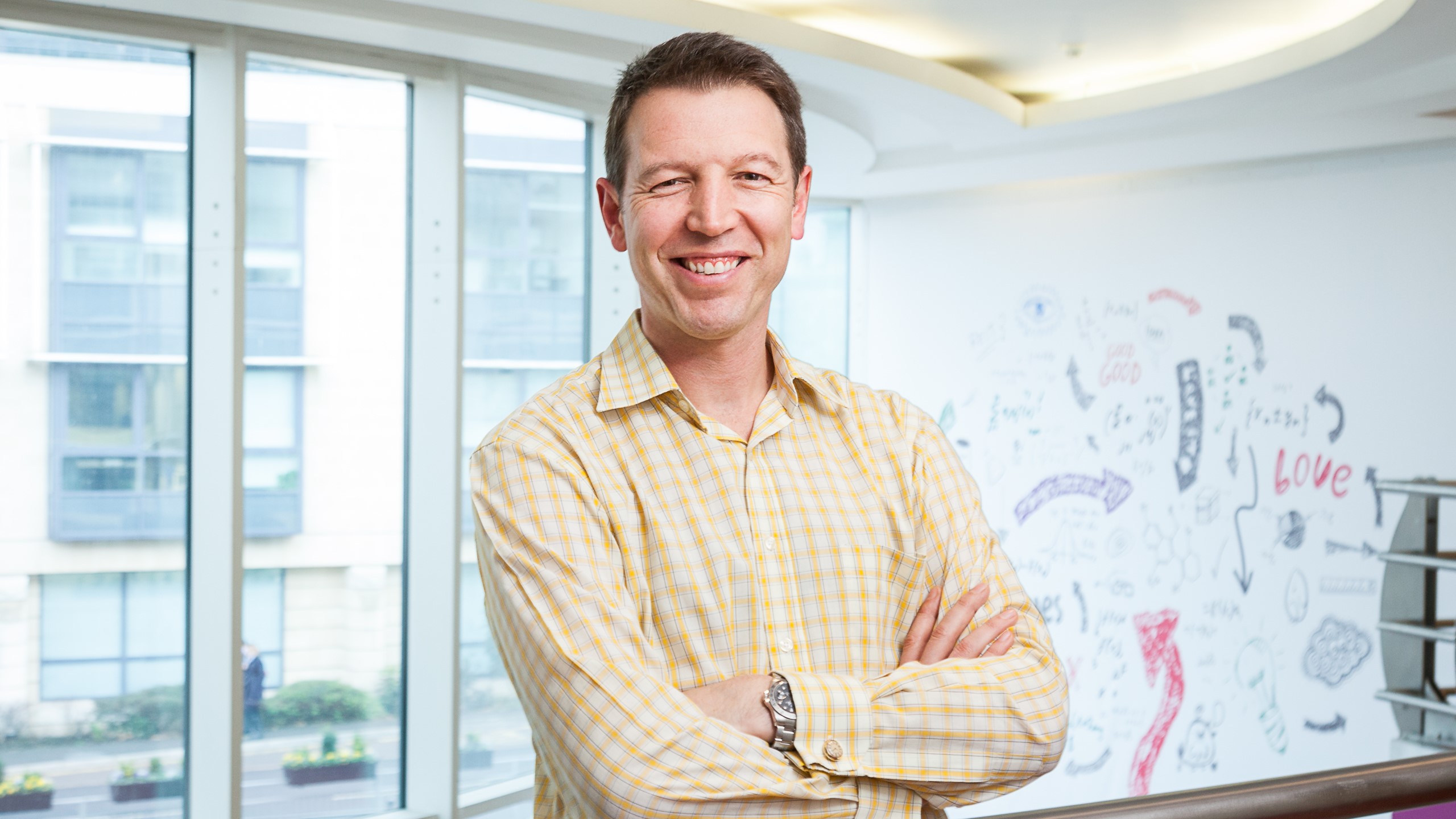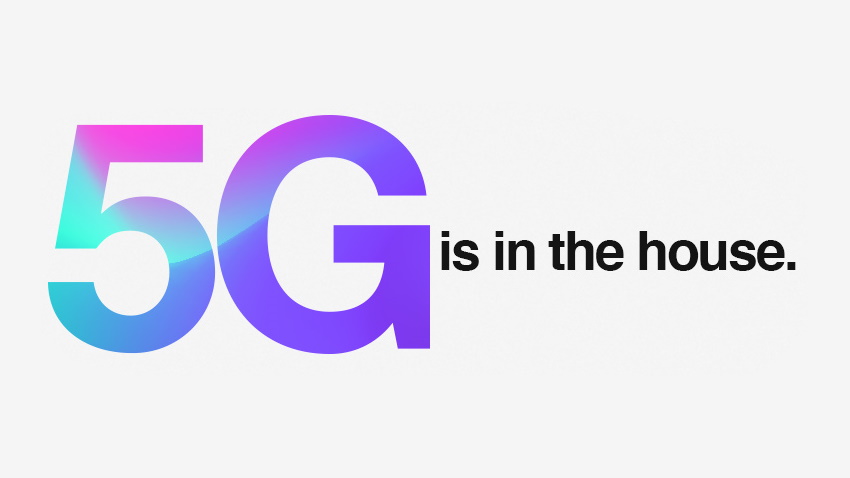Three CEO: Our 5G claims are based on facts
Three becomes UK's third 5G operator

Earlier this week, Three became the third UK operator to launch 5G in the UK, switching on its network in parts of central London.
Unlike EE and Vodafone, Three is only offering Fixed Wireless Access (FWA) broadband for now, but it has a long-term vision of offering the country’s fastest 5G service for smartphones too.
The UK’s smallest operator has consistently stated that it believes 5G will allow it to lead the market for the first time thanks to its spectrum holdings.
Thanks to auction victories and the acquisition of UK Broadband, Three says it has the most usable 5G spectrum of any UK network and that it has 100 MHz of contiguous 3.4GHz airwaves that will allow it to offer the fastest, most reliable connection.
5G FWA has often been touted as a way to reach more remote parts of the country cost-effectively – after all, there is no need to lay fibre cables – but Three is also pitching its product as a flexible, ‘plug and play’ alternative to fibre.
- EE complains to ASA over Three 'true 5G' claims
- Three CEO: Capacity not speed is benefit of 5G
- Keep up with the latest 5G in the UK
A ‘fibre-like’ experience
“We know from our research that broadband customers don’t want to pay for what they don’t need, such as line rental,” Three CEO Dave Dyson tells TechRadar Pro. “They don’t like waiting for things like engineer visits and the complexity of [transferring broadband] when moving house, they don’t like RPI hikes.”
The ability to offer FWA has been possible for some time – UK Broadband’s Relish has offered FWA on 4G – but the capacity of 5G means it’s able to match the reliability and experience. And this extends to unlimited data.
Are you a pro? Subscribe to our newsletter
Sign up to the TechRadar Pro newsletter to get all the top news, opinion, features and guidance your business needs to succeed!
Because home users tend to use more bandwidth than mobile users, it has been seen as a risky proposition to give them unlimited data because it could negatively impact other users on the network.
Three says 5G FWA offers a “fibre-like” experience, with Dyson arguing that most applications require less than 10Mbps, while households using data intensive applications such as 4K streaming or with concurrent users needing up to 50-60Mbps.
“We think 5G FWA can address the pain points and compete with fixed providers in a large way with speeds in excess of 100Mbps.”

Futureproof network?
However most fibre broadband in the UK today is powered by Fibre to the Cabinet (FTTC) technology, whereas fibre to the premise (FTTP) technology will most likely become the predominant technology in the future.
This means speed will become less of a pain point and 5G FWA will lose some of its advantage. Future advancements to Three’s 5G infrastructure will of course increase real world speeds, but Three says it isn’t targeting power users.
“We’re not looking for 100 per cent market share, we just need the market to be big enough,” adds Dyson.
Dyson wants FWA to be included in government conversations about ultrafast broadband, suggesting there is too much focus on FTTP. He says there is too much attention paid to technology rather than the needs of the end user.
“[5G FWA] technology is complementary [to fibre],” he says. “To get the UK fully fibred up is going to take a decade. If you want to get ultrafast broadband as fast as possible, you can do it quickly and more cost effectively [with 5G FWA].”
However, such a claim does not indicate that Three’s 5G coverage will be widespread. The majority of mobile traffic is generated in urban areas well served by mobile infrastructure, rather than the rural areas that others believe FWA can have a major impact.
Huawei, for example, doesn’t believe the majority of the UK will have access to 5G until 2027.
What is 'real 5G'?
The eventual scope of Three’s coverage is still to be determined, but eventually 5G will be made available to all Three customers at no extra cost. This is contrast to some of its rivals which are charging premiums and imposing data caps.
“5G as a technology is more efficient – cost per gigabit is less than 4G,” explains Dyson. “We don’t see that as an opportunity to extract more profit but to improve experience.
“We’ve had unlimited for more than a decade and it’s something we’ve worked hard to maintain. Unlimited serves two groups of customers – one that uses it a lot and values what they get, and another group that worries about their usage. For them, it’s a form of insurance policy.”
Three’s spectrum assets form the basis of its marketing campaign. Billboards and newspaper wraps boldly claim that if “it’s not Three, it’s not real 5G.”. When asked about the claims, Dyson said they were a mixture of tongue-in-cheek boldness and fact.
“If you look at International Telecommunications Union (ITU) standards, they say to get a genuine 5G experience you need a minimum of 100MHz spectrum,” he says. “That’s part of the fact.
“Of course EE and Vodafone have launched [5G services] but the reality is that, whether 100MHz is the standard or not, our 5G service uses double the spectrum and in practice that means double the capacity.”
“I genuine believe we are building the UK’s fastest 5G network.”

Mobile services
As part of its 5G rollout, Three has started migrating customers to a new cloud-based core network built by Nokia. The new core makes it easier and quicker to rollout new services, improves the cost-effectiveness of the infrastructure, and reduces latency.
Around five per cent of traffic is now handled by the new core, while 80 per cent of customers have interacted with it.
Three has said it plans to launch mobile 5G in 25 towns and cities before the end of 2019, but could not give a more specific date.
“It’s different for [5G] smartphones,” he says. “We need more sites so customers have a genuine 5G experience, it’s about having the core network up in running and having some of the IT elements in place.
“People won’t remember when you launched, whether it’s November or December, they’ll remember if it’s a rubbish experience.
Dyson was also unable to give an update on the expected pace of rollout due to the complexities of building and upgrading infrastructure. The age-old industry complaint of access to sites and landlords was cited as one reason.
But he is adamant that 5G will be transformative for Three as a company.
“Network perception is something that holds us back in terms of customer acquisition,” he says. “It’s a perception issue, not a network one.
“I think leading on 5G is a chance to shift our brand.”
- Here are the best Three mobile phone deals for August 2019
Steve McCaskill is TechRadar Pro's resident mobile industry expert, covering all aspects of the UK and global news, from operators to service providers and everything in between. He is a former editor of Silicon UK and journalist with over a decade's experience in the technology industry, writing about technology, in particular, telecoms, mobile and sports tech, sports, video games and media.